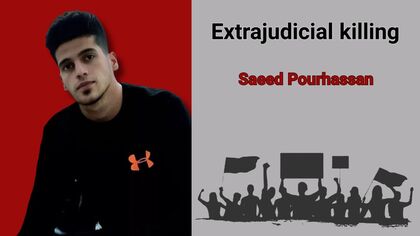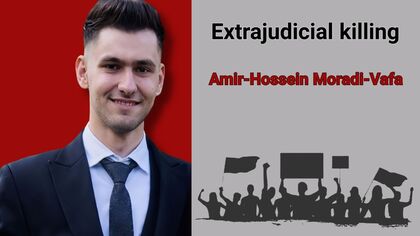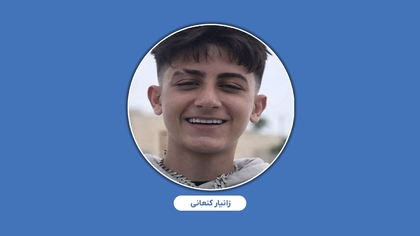Iran nuclear standoff enters more dangerous phase
15:34 - 10 November 2011

Kurdpa- The standoff over Iran\'s nuclear program is entering a more dangerous phase and the risk of conflict will increase if Iran does not negotiate, British Foreign Secretary William Hague warned on Wednesday.
He said Britain was considering further sanctions on Iran\'s financial and energy sectors after a U.N. nuclear agency report that he said \"completely discredited\" Iran\'s assertion that its nuclear program was peaceful.
He said Britain, one of six powers that have been handling the nuclear dispute with Iran, wanted a negotiated solution and was not advocating military action, but he said no option had been taken off the table.
\"We are entering a more dangerous phase ... The longer Iran goes on pursuing a nuclear weapons program without responding adequately to calls for negotiations from the rest of us, the greater the risk of a conflict as a result,\" Hague told parliament.
The U.N. nuclear watchdog, the International Atomic Energy Agency (IAEA), said in a report that Iran appeared to have worked on designing an atomic bomb and may still be conducting secret research to that end.
There has been heightened speculation in the Israeli media that Israel may strike against Iran\'s nuclear sites and speculation in the British press about a possible U.S. strike.
Iran rejected the IAEA report as politically motivated and said it was ready for negotiations, according to the semi-official Fars news agency.
Hague said Britain was \"prepared to have further talks but only if Iran is prepared to engage in serious negotiations about its nuclear program without preconditions.\"
\"If not, we must continue to increase the pressure and we are considering with our partners a range of additional measures to that effect,\" Hague added.
As well as talking to allies about further sanctions, Britain was considering further unilateral measures if Iran failed to \"comply with (its) responsibilities,\" he said.
\"We are looking at additional measures against the Iranian financial sector, the oil and gas sector, and the designation (on a sanctions list) of further entities and individuals involved with their nuclear program,\" he said.
Hague did not say in which forum Britain would seek more sanctions. But he recognized the difficulty of gaining agreement on more U.N. Security Council sanctions given likely Russian and Chinese resistance. However, he said there \"will be a strong case for further discussions at the U.N.\"
Government sources said Britain was more likely to pursue further sanctions with like-minded countries or at the EU level.
The IAEA report was \"bad news\" for nuclear proliferation in the Middle East, Hague said.
Iran\'s nuclear program \"threatens to drive a coach and horses through the (nuclear) Non-Proliferation Treaty ... It makes it much more likely that other states in the region will develop their own nuclear weapons programs and the world\'s most unstable region will be in possession of the world\'s most destructive weapons,\" he said.
Israel, Iran\'s arch-foe and a close strategic ally of Western powers, is widely believed to have the Middle East region\'s only nuclear arsenal, dating back decades. It has never confirmed or denied this, under a policy of ambiguity to deter attacks by Arab and Iranian enemies.
Source: Reuters
He said Britain was considering further sanctions on Iran\'s financial and energy sectors after a U.N. nuclear agency report that he said \"completely discredited\" Iran\'s assertion that its nuclear program was peaceful.
He said Britain, one of six powers that have been handling the nuclear dispute with Iran, wanted a negotiated solution and was not advocating military action, but he said no option had been taken off the table.
\"We are entering a more dangerous phase ... The longer Iran goes on pursuing a nuclear weapons program without responding adequately to calls for negotiations from the rest of us, the greater the risk of a conflict as a result,\" Hague told parliament.
The U.N. nuclear watchdog, the International Atomic Energy Agency (IAEA), said in a report that Iran appeared to have worked on designing an atomic bomb and may still be conducting secret research to that end.
There has been heightened speculation in the Israeli media that Israel may strike against Iran\'s nuclear sites and speculation in the British press about a possible U.S. strike.
Iran rejected the IAEA report as politically motivated and said it was ready for negotiations, according to the semi-official Fars news agency.
Hague said Britain was \"prepared to have further talks but only if Iran is prepared to engage in serious negotiations about its nuclear program without preconditions.\"
\"If not, we must continue to increase the pressure and we are considering with our partners a range of additional measures to that effect,\" Hague added.
As well as talking to allies about further sanctions, Britain was considering further unilateral measures if Iran failed to \"comply with (its) responsibilities,\" he said.
\"We are looking at additional measures against the Iranian financial sector, the oil and gas sector, and the designation (on a sanctions list) of further entities and individuals involved with their nuclear program,\" he said.
Hague did not say in which forum Britain would seek more sanctions. But he recognized the difficulty of gaining agreement on more U.N. Security Council sanctions given likely Russian and Chinese resistance. However, he said there \"will be a strong case for further discussions at the U.N.\"
Government sources said Britain was more likely to pursue further sanctions with like-minded countries or at the EU level.
The IAEA report was \"bad news\" for nuclear proliferation in the Middle East, Hague said.
Iran\'s nuclear program \"threatens to drive a coach and horses through the (nuclear) Non-Proliferation Treaty ... It makes it much more likely that other states in the region will develop their own nuclear weapons programs and the world\'s most unstable region will be in possession of the world\'s most destructive weapons,\" he said.
Israel, Iran\'s arch-foe and a close strategic ally of Western powers, is widely believed to have the Middle East region\'s only nuclear arsenal, dating back decades. It has never confirmed or denied this, under a policy of ambiguity to deter attacks by Arab and Iranian enemies.
Source: Reuters



